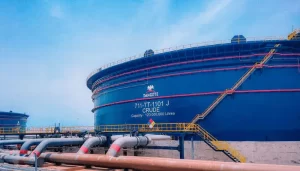
In a pivotal move likely to reshape Nigeria’s fuel industry, Dangote Petroleum Refinery has announced a reduction in the ex-depot price of Premium Motor Spirit (PMS), commonly known as petrol, from ₦970 to ₦899.50 per liter. This strategic price cut, coupled with similar actions by the Nigerian National Petroleum Company Limited (NNPCL), is expected to initiate a significant downward trend in fuel prices, possibly reaching as low as ₦500 per liter in the near future.
Market Dynamics and Price Competition
The price reduction by Dangote Refinery has set off a competitive ripple effect across the downstream sector. In response, NNPCL reduced its ex-depot price from ₦1,045 to ₦899 per liter, translating to a pump price of approximately ₦925 per liter for consumers. Industry experts foresee this trend fostering a consumer-friendly market environment, with projections indicating further reductions in fuel prices throughout 2025.
Factors Driving the Price Reduction
Several critical factors are influencing this expected decline in petrol prices:
1. Increased Local Refining Capacity: The operational commencement of the Dangote Refinery, alongside the revitalization of the Port Harcourt and Warri refineries, has significantly bolstered domestic refining capacity. This enhancement reduces dependency on imports, stabilizing supply and potentially lowering costs.
2. Deregulation Policies: The Nigerian government’s commitment to deregulating the downstream sector has encouraged competition and operational efficiency, creating a conducive atmosphere for price reductions.
3. Foreign Exchange Stability: A more stable foreign exchange policy has alleviated the financial pressures associated with importing refined products, resulting in cost savings that can benefit consumers.
4. Naira-for-Crude Policy: The implementation of policies allowing refineries to purchase crude oil in naira has mitigated the adverse effects of foreign exchange fluctuations, promoting price stability.
Implications for the Nigerian Economy
The anticipated reduction in fuel prices is poised to bring several positive outcomes:
- Economic Relief: Lower fuel costs can reduce transportation expenses and the overall cost of goods and services, providing significant economic relief to Nigerians.
- Inflation Control: A decrease in fuel prices is expected to help control inflationary pressures, enhancing the purchasing power of consumers.
- Enhanced Market Efficiency: Increased competition among suppliers is likely to improve service delivery and operational efficiency within the sector.
Industry Perspectives
While there is cautious optimism about the potential for fuel prices to drop to ₦500 per liter, industry stakeholders are divided on the feasibility of this target. Ukadike Chinedu, the Publicity Secretary of the Independent Petroleum Marketers Association of Nigeria (IPMAN), views the initiation of operations at key refineries as a game-changer that could indeed promote healthy price competition and drive prices down.
Conclusion
Dangote Refinery’s proactive approach in reducing fuel prices marks a significant milestone in Nigeria’s journey toward energy self-sufficiency and market-driven pricing mechanisms. As local refining capacities expand and government policies continue to support deregulation and competition, the prospect of petrol prices reaching ₦500 per liter appears increasingly within reach, promising substantial benefits for consumers and the broader Nigerian economy.

